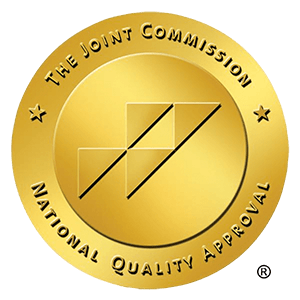“Partial hospitalization program,” or “PHP,” is an outdated and confusing term. PHP is the highest level of outpatient (i.e., non-residential) behavioral health care. There are no overnight stays at a hospital or facility; patients live at home and attend programming during the day.
Core Recovery’s Teen Co-Occurring Partial Hospitalization Program is our most common teenage PHP program track. Human beings are complicated, and adolescence is a particularly complicated time. Teens often struggle with more than one thing at once – including mental health, addiction, and/or eating disorders. The Co-occurring PHP program recognizes this reality by meeting our teenage patients where they are, and working with them and their families to develop a treatment plan that addresses the overlapping and interconnected challenges they currently face.

Core Recovery’s Co-Occurring PHP provides comprehensive, integrated care, five days per week. The program offers a fully day of therapeutic and educational programming for teenagers who are currently attending school remotely or participating in online learning. The PHP program offers a safe, structured, and supervised environment for adolescents to receive the mental health care that will empower them to return to more ordinary routines.
Core Recovery’s clinical team includes therapists, psychiatric professionals, registered dietitians, and case managers, all of whom work collaboratively to meet the individualized needs of every patient.
From the first day of treatment, the Core Recovery clinical team engages warmly, honestly, and empathetically with every teenage patient and their families to develop a customized treatment plan that is tailored to meeting that patient’s unique clinical needs and personal goals. Individualized treatment plans for Core Recovery’s patients include a combination of group therapy, individual therapy, family therapy, creative expression therapy, diet and nutrition counseling, and psychiatric / medication management and treatment. Patients who are struggling with an eating disorder also participate in supported meals and ongoing meal-planning.
Core Recovery’s Co-Occurring PHP program uses evidence-based modalities—including cognitive behavioral therapy (CBT), dialectical behavioral therapy (DBT), and eye movement desensitization and reprocessing (EMDR)—to provide patients struggling with one or more mental health issues, addiction issues, and/or eating disorders a healthy and positive therapeutic experience.
FAQs About Core Recovery's Teen Co-Occurring PHP
A: Core Recovery offers programing for those struggling with co-occurring disorders including mental health diagnosis, eating disorders, and substance use.
A: At Core Recovery your treatment program will be customized to meet your individual needs. Once we have completed our evidence-based assessments, determination of level of care and program type will be a collaborative process with your treatment team.
A: Core Recovery offers family systems counseling integrated into our IOP and PHP programs. Family systems counseling aims to promote understanding and collaboration between couples or among family members to solve problems encircling one or more individuals with a focus on your recovery.
A: Outpatient programs—particularly IOPs and PHPs—are as effective as inpatient programs in helping people get and stay sober.
One study found that an outpatient program for alcoholics had a 58% abstinence rate and a 79% improvement rate in patients at a two-year follow-up.
Another study found a 67% abstinence rate for inpatient participants, a 75% abstinence rate for outpatient participants at a 6-month follow-up, a 60% abstinence rate for inpatient participants, and a 68% abstinence rate for outpatient participants at a one-year follow-up.
A review of 12 studies and one review published between 1995 and 2012 found that IOPs and PHPs produced similar reductions in drug and alcohol use and increases in days abstinent compared to inpatient or residential programs.

